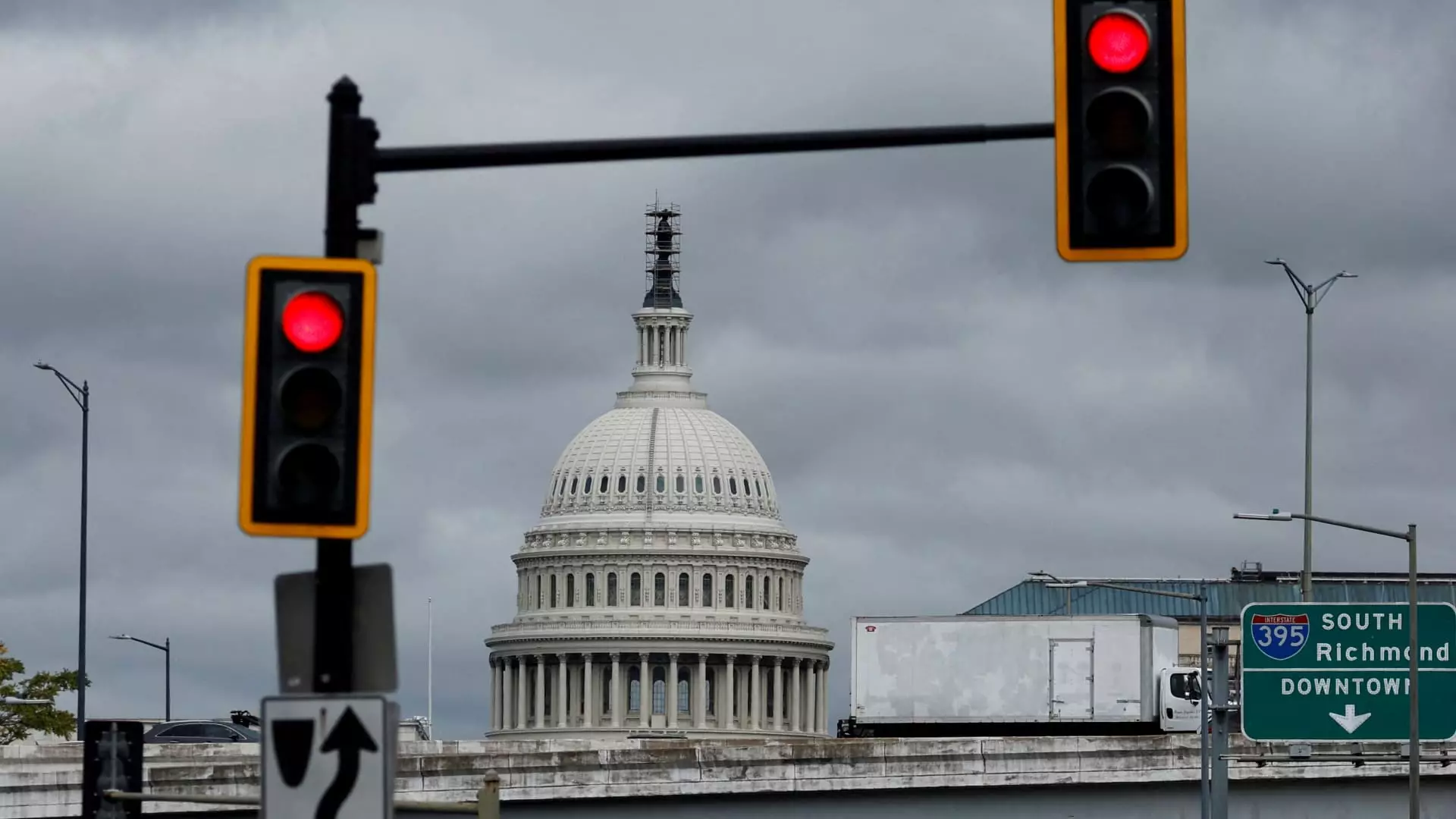As lawmakers return to Congress, the prospect of a government shutdown is increasingly likely, with no clear resolution in sight. The infighting among Republicans in the House of Representatives has pushed the United States to the brink of its fourth partial government shutdown in a decade. While the Democratic-controlled Senate is set to advance a stopgap funding bill, final approval may be delayed for days. The consequences of this gridlock are dire, as hundreds of thousands of federal employees face the possibility of being unable to perform their duties without the necessary funds. With less than 18 hours until the start of the new fiscal year, the urgency to find a solution is paramount.
In anticipation of a government shutdown, federal agencies have already formulated plans that outline which services will continue and which will come to a halt. Essential services like airport screening and border patrols are deemed necessary and will persist. However, areas such as scientific research and nutrition aid for millions of impoverished mothers are likely to be severely impacted. Additionally, the government’s 4 million-plus employees will face the prospect of not receiving their salaries, regardless of whether they are working or not. This scenario is not only disruptive but also detrimental to the livelihoods of many individuals and their families.
This standoff between political factions comes on the heels of a recent fiscal cliff, highlighting the ongoing instability within Congress. The potential for a government shutdown has raised concerns on Wall Street, as the Moody’s ratings agency warns that it could harm the creditworthiness of the United States. Furthermore, this political impasse creates uncertainty and undermines confidence in the government’s ability to effectively govern and manage its financial obligations. Such uncertainty can have far-reaching effects on the economy and investor sentiment.
A Clash of Priorities and Failed Negotiations
In normal circumstances, Congress passes stopgap spending bills to buy more time for detailed negotiations on federal funding. However, this year, a group of Republicans has stymied progress by demanding stricter immigration policies and deeper spending cuts. On Friday, their demands were reflected in legislation that was ultimately defeated, with 21 Republicans joining Democrats in voting against it. This led to frustration among other Republicans who believed that an opportunity to advance conservative policies had been missed. The lack of cohesion within the Republican party further hampers progress and exacerbates the likelihood of a government shutdown.
Amid mounting pressure and time constraints, House Speaker Kevin McCarthy suggested the possibility of relying on Democrats to pass a stopgap bill that would sustain funding at current levels. While this may be a pragmatic approach, it could also provoke a challenge to McCarthy’s leadership from hardline conservatives. The situation remains fluid, with unclear details regarding McCarthy’s proposal. Meanwhile, the Senate plans to hold a procedural vote to extend government funding through November 17th – a move that garners support from both Republicans and Democrats. Despite this initial support, the legislative hurdles in the Senate may delay a final vote until Tuesday. Even if the bill passes both chambers, the differences between them would need to be resolved before it can be sent to President Joe Biden for signature.
The Ongoing Search for a Resolution
Efforts to avert a government shutdown continue, but the path forward remains uncertain. The political parties must navigate their internal divisions while confronted with mounting pressure to find a viable solution. As the clock ticks down to the fiscal year’s start, the need for collaboration and compromise becomes increasingly urgent. Failure to reach a resolution not only disrupts essential government services but also erodes public trust in elected officials and the legislative process. Ultimately, a comprehensive, bipartisan agreement is necessary to avoid the detrimental consequences of a government shutdown.


Leave a Reply